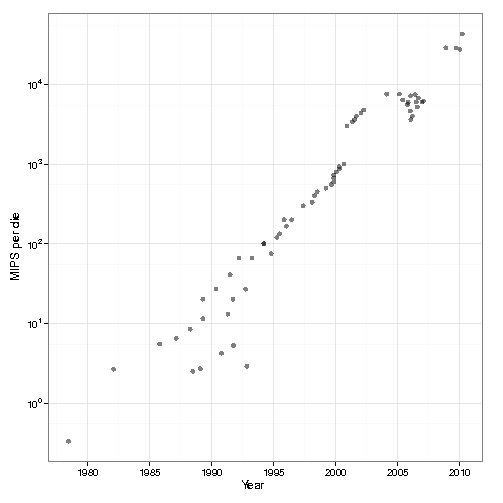Here’s an interesting thing to think about: Kurzweil says that technological progress accelerates. The more technologically advanced we are, the faster we advance technologically. Is this in fact true?
It seems definitely not true within a specific given technology. For example, making faster CPUs doesn’t directly help us make faster CPUs. Most of the dramatic improvement in CPU speed in the 90s came from improved manufacturing techniques, not from running fancy optimizations on ever-faster CPUs. Improved farming techniques haven’t lead to superfoods that make us so smart we think of even better farming techniques, leading into an ever-elevating spiral of progress. Even all our progress in AI, despite the hype about superintelligence, has not yet furnished us with a better AI.

But perhaps it’s true when we consider groups of technologies. Improved CPU speed has certainly lead to better AI. But that’s not enough to lead to a compounding effect—we need to close the cycle, such that progress in A drives progress in B drives progress in C which in turn drives progress in A. Otherwise we don’t have compounding progress, we just have fast and correlated progress. Is there such a cycle?
I think that if there is, the cycle must include something that enhances capacity for invention. Whether it’s one of those fabled superintelligences, which invents ways to improve itself so that it can invent even cleverer ways of improving itself ad destruction-of-the-human-raceum, or a more mundane lever like Wikipedia, any cycle of progress that compounds must be centred around something that improves its own ability to progress. i.e., us.